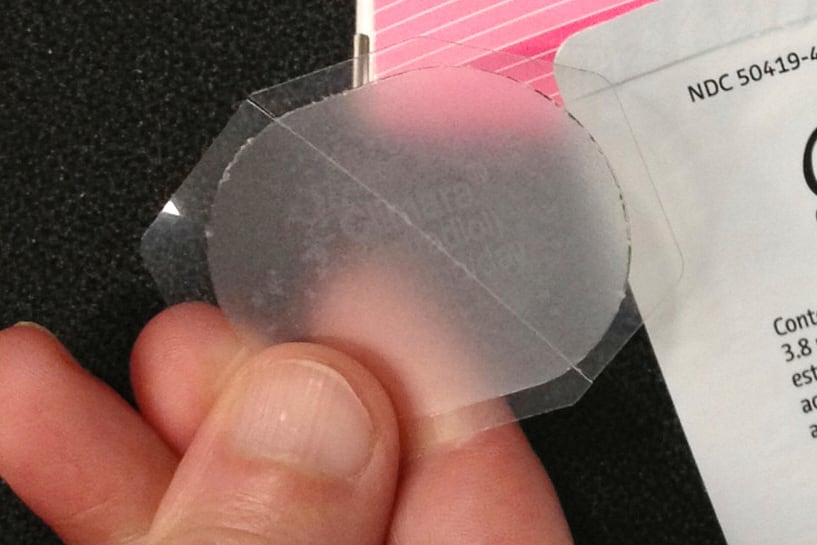Numerous disruptive symptoms, such as hot flashes, night sweats, and trouble sleeping, can be brought on by menopause. Relief is promised by hormone therapy.
However, a lot of women are unsure about taking it. This is because there has long been a lack of clarity about the treatment, which was the focus of a recent expert group that the Food and Drug Administration assembled.
Suggested Videos
In the past, it was frequently used. However, due to worries about elevated risks of blood clots and breast cancer, research of one variety was halted early in 2002. Even if further research revealed that the advantages of modern hormone treatments for many women exceed the risks, worries persisted.
Grayson Leverenz, a 50-year-old from Durham, North Carolina, who was hesitant to take it but is happy she did, said there is still a lot of uncertainty and worry.
More and more people are also considering hormone therapy. However, specialists are still at odds on how best to communicate the benefits and drawbacks of the treatment. Before making any adjustments, dozens of experts called for greater input after the FDA-assembled group emphasized the benefits and recommended that health warnings be deleted from at least some versions.
Many menopausal women, but not all, benefit greatly from hormone therapy, according to doctors, and it’s crucial to comprehend the complex realities of these treatments before choosing the best one.
The operation of hormone treatment
It addresses the symptoms that may appear when the menstrual cycle comes to an end and estrogen and progesterone levels fall dangerously low.
Low-dose vaginal estrogen treatment is one kind. The hazards are significantly reduced because it is applied to the vagina, where relatively little circulates in the blood. According to doctors, it’s a wonderful choice for ladies who have vaginal dryness as their main complaint.
Pills, patches, sprays, gels, or vaginal rings that release hormone doses into the bloodstream at levels high enough to significantly impact symptoms like hot flashes are all part of whole-body therapy. Progestogens and estrogens are examples of such systemic hormones.
In addition to having an IUD that provides her with progesterone, Jennifer Zwink, a nurse in Castle Rock, Colorado, started using an estrogen patch over a year ago. Her hot flashes, sleep, joint discomfort, and bloating have all improved as a result of the medication.
She stated, “It’s not like a 100% magic wand.” However, it has undoubtedly had a big impact.
According to the Menopause Society, if hormone therapy is initiated within ten years of menopause, it can reduce the risk of cardiovascular disease. Additionally, it may prolong bone density and lower the risk of Type 2 diabetes.
According to Dr. MargEva Morris Cole, an OB-GYN at Duke University, “they might have a drop in their bone density at age 60” rather than at age 50.
There are hazards associated with hormone therapy.
Leverenz continued to worry about the risks she had read about when she was originally offered hormone therapy last year, but she ultimately came to the conclusion that “I can’t live like this anymore.”
Her joint discomfort, hot flashes, anxiety, and sleep all improved with a mix of three drugs.
She remarked, “I just feel like myself again.”
Physicians try to comfort patients who are hesitant to try hormones.
According to the Menopause Society, women can use estrogen therapy for seven years and estrogen-progestogen therapy for three to five years before their chance of developing breast cancer increases.
According to the group, the risk of stroke is increased by both estrogen therapy and estrogen-progestogen therapy, however this risk disappears quickly following hormone cessation. Taking hormones orally increases the risk of blood clots, but using a patch, gel, or spray may reduce that risk.
According to Dr. Nanette Santoro, an OB-GYN at the University of Colorado, many of these concerns are minimal. Additionally, they must be balanced against the advantages of symptom reduction.
Other factors to take into account include age, medical history, and the length of time women use hormones. Those who have had a stroke or certain other disorders may be recommended not to use them at all, and many women take them for about five years.
Discussion about revising hormone medicine warnings
There is disagreement among doctors on whether the black box health warnings for certain hormone therapy should be changed. There are still boxed warnings on all estrogen prescriptions regarding the increased risk of stroke, blood clots, and cognitive issues in women who take them.
At a recent FDA-organized expert panel conference, the majority of the doctors either prescribe the hormones or are part of a pharmaceutical industry campaign that is against the warning label. In a letter signed by 76 physicians and researchers, they say that patients are put at danger when label warnings are removed without a sufficient scientific evaluation. They also request that the agency have an advisory committee meeting and public hearing before making any modifications.
Doctors advise individuals to be cautious of incorrect information in the interim, such as erroneous statements on social media that hormones will guarantee a good old age and prevent dementia.
Duke’s Cole stated, “We cannot say that you will live a longer, healthier life because you took hormones.” I don’t want people to believe that the pendulum will continue to swing in a positive direction for the next thirty to forty years.
Menopause alternatives to hormone therapy
Santoro recommended fezolinetant, a brand-new non-hormonal drug for hot flashes and night sweats that is sold under the Veozah brand. Hot flashes can also be treated with low dosages of the anti-epileptic drug gabapentin, and vaginal dryness can be improved using a moisturizer.
A balanced diet and frequent exercise can also help manage symptoms, according to experts.
Santoro cautioned against the unchecked growth of products that promise to heal menopause.
According to her, everyone is participating in the menopause gold rush. If something seems too good to be true, it most likely is.
___
The Robert Wood Johnson Foundation and the Department of Science Education of the Howard Hughes Medical Institute provide support to the Associated Press Health and Science Department. All content is entirely the AP’s responsibility.








